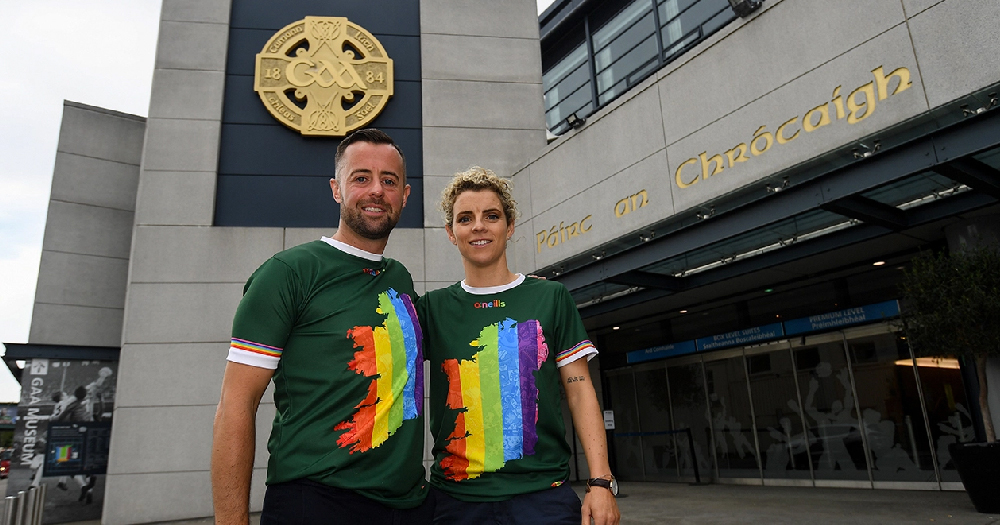The GAA will welcome a historic first as it introduces the first-ever LGBTQ+ GAA club. Na Gaeil Aereacha (The Gay Gaels) will be initially based in Dublin and co-founder Caoimhe Baxter said they hope to get out on the pitch next year.
The association has made great strides towards LGBTQ+ inclusion in recent years, employing a full-time diversity and inclusion officer in 2019, as well as speaking out against homophobia in the sporting world.
David Gough has long called on the association to do more and this is a clear step in the right direction.
Speaking about the new club, Gough wrote on Twitter:
“What a momentous occasion for @officialgaa as they are set to have their first Gay GAA team registered. A massive congrats to all in @GaelsRainbow for their tireless work in constituting a new club and to @GerMcTavish our D&I officer for her support.”

The launch of the first GAA LGBTQ+ club was highlighted at a webinar hosted by DCU’s Centre of Excellence for Diversity and Inclusion.
The issues surrounding a lack of inclusive practices in sport and the implications in terms of an individual’s wellbeing and the sustainability of sporting organisations were the focus of the webinar featuring representatives from the GAA, TENI and AIB on Wednesday, November 4.
The virtual event provided stark insights into the lack of inclusive practices in sport and examined how having the right policies in place can create safer spaces for freedom of expression in sport.
Speaking about Na Gaeil Aereacha at the webinar, Geraldine McTavish, Croke Park’s first Diversity and Inclusion Officer noted that far fewer men feel comfortable coming out in the sporting world when compared to their female counterparts.
“I find it very hard to find visible (gay) male role models whereas you have a number of them in the LGFA, for example, who are very vocal and visible. I think it is just a changing culture.
“That is the GAA’s mission and it is everyone’s responsibility, at every level from clubs upwards, to be their allies,” McTavish said.
Sport is for all and LGBTQI+ inclusion is so important! #PrideInSport2020 ?️? https://t.co/12HrW5zzrO
— Na Gaeil Aeracha (@NaGaeilAeracha) October 22, 2020
Dr Tanya Ni Mhuirthile, an assistant professor of law at DCU said: “If something is said, in a dressing room or on a pitch, we need to empower managers, coaches and referees to say ‘stop that right now!’
“You would stop it if you saw boys picking on girls or someone picking on a racially different kid. It has to stop at the top level but it starts with all those micro-aggressions that must be stopped too.
“They’re the worst. If managers and coaches stop it, then other people in the sport will call it out. That’s only going to happen slowly, and with time, but it does happen when people in leadership roles take the lead and demonstrate what is acceptable. Ideally, you create an environment where no one ever needs to use a complaints procedure,” she added.
© 2020 GCN (Gay Community News). All rights reserved.
Support GCN
GCN is a free, vital resource for Ireland’s LGBTQ+ community since 1988.
GCN is a trading name of National LGBT Federation CLG, a registered charity - Charity Number: 20034580.
GCN relies on the generous support of the community and allies to sustain the crucial work that we do. Producing GCN is costly, and, in an industry which has been hugely impacted by rising costs, we need your support to help sustain and grow this vital resource.
Supporting GCN for as little as €1.99 per month will help us continue our work as Ireland’s free, independent LGBTQ+ media.

comments. Please sign in to comment.